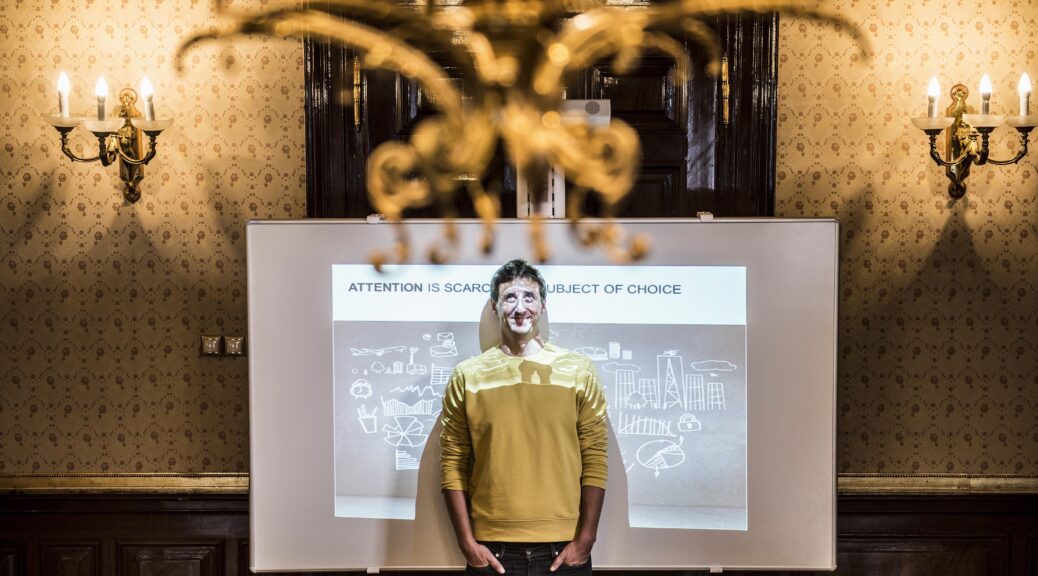Filip Matějka, a researcher and member of the CERGE-EI faculty, has received the prestigious Consolidator Grant from the European Research Council. The Council selected Filip for the second time in the international competition of applicants for ERC grants. In 2015, he was the first to receive an ERC Starting grant for social science research in the Czech Republic. His project Attention continues to explore the imperfections of human decision-making and its impact on society, and we asked him a couple of questions regarding it.
For starters, mighty congratulations! The title of your ERC supported project is Economics of Inattention. If you were to explain to your granny in a few sentences what economics of inattention is about, what would you tell her?
How are you, Granny? You know how I never pay attention and you’re not happy about it? It seems to be a big deal, right? Well, now I’m paid to understand it. Many people are like me, we pay attention to only a few things. It affects what we get information from, what products we buy in your store next door, what we invest in: if we buy a new house or shares in big American firms, or even what we think about politicians’ proposals.
How choices determine what goods and services are produced, how, and for whom, seems to be a big question. Will your study get us closer to an answer?
Our study will get us closer to answers of how people get their general understanding of how the world works and in another part how doctors make decisions when they pay attention to their patients. What gets produced is just another application.
How can a better understanding of the choices we make influence the economy or society in general?
Everything that we choose to do affects what we create. Also, what we know affects what we choose to do, what we have learned, and thus what we have paid attention to. If you ignore the long-term benefits of education, then you never go to school. If you don’t pay attention to the low-cost maintenance of an expensive printer, then you might instead buy a cheap printer but pay much more in the long run.
Most people are not even aware of why and how they make the choices they make. What difference will it make that a small group of scientists will have defined this process? How do you see the results of your study being used apart from philosophical discourse?
I am also not aware of how neurons affect my way of thinking, yet it’s useful that someone discovered it. I believe it’s useful that we have inattention in mind when designing economic policies or new products.
Can the choices we make in our self-interest also promote social interest?
Usually, but not always. If you start a company to make a profit and become rich, you help many people since you must provide something they want. However, sometimes you might destroy things along the way, e.g., nature.
Have you changed any of your own or your family’s habits because of what you have learned from your study of inattention?
I am very tolerant of all my failures now.
You surely know The First Law of Economists: “For every economist, there exists an equal and opposite economist.” – Economists appear divided on vital economic issues of the day – where fiscal and monetary policies should be going. What would you say to those who argue that because of not knowing where it stands concerning such fundamentals, economics is a lost field?
It’s true, social sciences are not exact sciences. People then interpret imperfect evidence differently and have different opinions. Do you know why? Because they have limited attention, and might also see different pieces of the evidence. Though on most topics, the vast majority of modern economists agree. Fifty years ago, we had big theories or stories of how the world can work, but not much data to say which of the theories were correct. The situation is very different now. We know that markets are often useful, but sometimes need to be regulated. The free-market doctrine is not correct. We also know that government is often useful in a crisis, but not in some crises and typically not in normal times. The unconditional Keynesian doctrine is also not correct. We know that. However, some people read only the first chapters of modern economics textbooks or read textbooks that are decades old, or have a coherent and simple, albeit wrong message. Some of them are very visible in media and public life. The need for a balanced view of the media is very dangerous. Some of the views are simply wrong, even if they balance whatever.
